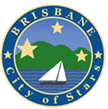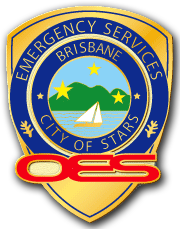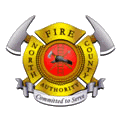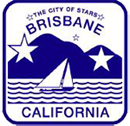Archived OES Tips
May 2010
With Fire Season approaching our tip of the Month for May is to participate in our 4th Annual Wildland Fire Evacuation Drill. Participation will improve Brisbane's safety preparations in two ways. First, you will learn the City's evacuation and assembly plan for residents, which may prove to be life-saving information in case of a real emergency. Second, your voluntary evacuation will provide public safety personnel the real-world challenges of directing outbound residential traffic and inbound fire protection equipment. This is also an opportunity to test your own personal evacuation plan and family reunification plan which may also prove to be life-saving during a real emergency.
March 2010
This month's tip of the month is to sign up for SMC Alert. SMC Alert is San Mateo County's Community Alert Notification System that is used to immediately contact you during urgent or emergency situations with useful information and updates by sending text messages to your email (home and/or work), cell phones, pagers, and/or smartphones/handheld devices. When registering for SMC Alert you will have the option to pick which city or town you would like to receive alerts for - make sure you click Brisbane! To register simply go to www.smcalert.info.
January 2010
As we review the earthquake devastation in Haiti and extend our heartfelt wishes for a speedy recovery from their suffering, the city suggests that each of its citizens review their individual disaster preparedness plans, and we specifically ask you to complete the Residential Survey Form so that we will be better able to assist you if a disaster happens.
December 2009
As we approach the end of 2009, we would like to remind everyone to make Emergency Preparedness part of your New Year's resolutions. We would like to help make your Emergency Preparedness New Years Resolutions a reality by providing important information and tools to help you succeed. Our tips for 2009 include Getting a Kit, Making a Plan, and Being Informed about potential disasters in our area. Being informed about the potential disasters you may encounter is the beginning step to understanding Emergency Preparedness. In 2010, we will continue to give you tips each month - something small you can do to help you become and stay more prepared. Brisbane Office of Emergency Services would like to wish everyone a Happy and Safe Holiday Season.
November 2009
This November, we would like you to Be Informed about the H1N1 (Swine) Flu. The regular (seasonal) flu comes every year. With the spread of the H1N1 (swine) flu virus, many more people may get sick. That’s why it’s important to help stop the spread of the flu, to recognize signs of the flu, and know what treatment you should use if you get the flu. There are three steps you can take to help prevent yourself and others from getting the regular and H1N1 flu:
1. Get the Flu Shot! This is the first and most important step to protect against getting the regular flu. A new vaccine for the H1N1 (swine) flu may be available soon.
2. Avoid the Flu Virus! The H1N1 (swine) flu is spread from person to person the same way as the regular flu, by coughing, sneezing, or touching something with the flu virus on it, such as a desk, doorknob, or telephone, and then touching your eyes, nose, or mouth. Take these steps daily to avoid getting or spreading the flu virus:
· Cover your nose and mouth with a tissue or the inside of your elbow when you sneeze or cough and throw the tissue away.
· Wash your hands often with soap and water or alcohol hand cleanser, especially after you cough or sneeze.
· Avoid touching your eyes, nose, or mouth – germs spread this way.
· If you are healthy, try to avoid contact with sick people.
· If you get the flu, stay home until your fever is gone for at least 24 hours (without needing to take any medicine to stop your fever).
3. Be aware and be prepared! Avoid contact with anyone that is sick. Follow the advice of health officials who will notify the public about sending children home from school or childcare and cancellation of other public events. The symptoms for both the regular flu and H1N1 (swine) flu are similar:
· High fever, chills, and body aches
· Muscle aches
· Sore throat
· Dry Cough
· Headache
· Runny nose or stuffy nose
· Very tired
· Sometimes nausea, vomiting, or diarrhea
If you or someone you know get the regular flu or H1N1 (swine) flu you should:
· Get plenty of rest
· Stay home and away from people
· Drink plenty of clear fluids, such as water or juice
· Avoid alcohol, coffee, tea, and tobacco
· Take medicine to relieve flu symptoms such as Advil
or Tylenol
· Write down information like medications and date and
time of symptoms
· Call the Doctor if Symptoms get worse
(See below for Emergency Warning Signs)
Emergency Warning Signs - Children:
· Fast breathing or trouble breathing
· Blue or gray skin color
· Not drinking enough fluids
· Severe or constant vomiting
· Not waking up or interacting
· Being irritable and not wanting to be held
· Symptoms improve but return with fever & bad cough
Emergency Warning Signs - Adults:
· Difficulty breathing or shortness of breath
· Pain or pressure in chest or stomach
· Fever does not improve with over-the-counter medicine
· Sudden dizziness or confusion
· Severe or constant vomiting or diarrhea
· Symptoms improve but return with fever & bad cough
October 2009
Fall began September 22, 2009 and we have had several Thunder and Lightning Storms this year. For October we would like you to be informed about Thunderstorms, Lightning, and Power Outages.
In the United States, lightning kills 300 people and injures 80 on average, each year. All thunderstorms produce lightning and all have the potential for danger. Those dangers can include tornadoes, strong winds, hail, wildfires and flash flooding, which is responsible for more fatalities than any other thunderstorm-related hazard.
Lightning's risk to individuals and property is increased because of its unpredictability, which emphasizes the importance of preparedness. It often strikes outside of heavy rain and may occur as far as 10 miles away from any rainfall. Most lightning deaths and injuries occur when people are caught outdoors in the summer months during the afternoon and evening.
Familiarize yourself with the terms that are used to identify a thunderstorm hazard
- A thunderstorm watch means there is a possibility of a thunderstorm in your area.
- A thunderstorm warning means a thunderstorm is occurring or will likely occur soon. If you are advised to take shelter, do so immediately.
Prepare Your Home
- Remove dead or rotting trees and branches that could fall and cause injury or damage during a severe thunderstorm.
- Secure outdoor objects that could blow away or cause damage.
- Shutter windows and secure outside doors. If shutters are not available, close window blinds, shades or curtains.
Power outages can happen at any time, not just during Thunder and Lightning Storms, and can last for hours or even days. It is important to always be prepared for a power outage. The following list will help you prepare your home and family for when a power outage strikes.
- Fill plastic containers with water, leaving about an inch of space inside each one for the frozen water to expand. Place the containers in the refrigerator and freezer. This chilled or frozen water will help keep food cold for several hours if the power goes out.
- If you use medication that requires refrigeration, most can be kept in a closed refrigerator for several hours without a problem. If unsure, check with your physician or pharmacist.
- Back up computer files and operating systems. Consider buying extra batteries and a power converter if you use a laptop computer.
- Turn off all computers, monitors, printers, copiers, scanners and other electronic devices when they are not being used.
- Get a high-quality surge protector for your electronic equipment.
- If you have an electric garage door opener, find out where the manual release lever is located and learn how to operate it.
- If you have a telephone at home or at work that requires electricity to work (such as a cordless phone), plan for alternate communication, including having a standard telephone handset, cellular telephone, radio or pager.
- Keep your car fuel tank at least half full because gas stations rely on electricity to power the pumps.
- Remember that equipment such as automated teller machines (ATMs) may not work during a power outage, so make sure you have extra cash at home.
- Know if you live in an area that has rolling blackouts. A rolling blackout occurs when a power company turns off electricity to selected areas to save power. The blackouts are typically for one hour, then the power is restored and another area is turned off. Hospitals, airport control towers, police stations, and fire departments are often exempt from these rolling blackouts. They can happen at any time of day and may affect the same area more than once a day.
September 2009
With the recent Hazardous Material response in South San Francisco which ended up being an ammonia leak at the Columbus Salami plant, we wanted to you to be informed about Hazardous Material Spills/Chemical Leaks for September.
A chemical spill or leak is the release of a toxic gas, liquid or solid that can poison people and the environment.
Possible Signs of Chemical Threat
- Many people suffering from watery eyes, twitching, choking, having trouble breathing or losing coordination.
- Many sick or dead birds, fish or small animals are also cause for suspicion.
If You See Signs of Chemical spill or leak: Find Clean Air Quickly
- Quickly try to define the impacted area or where the chemical is coming from, if possible.
- Take immediate action to get away and call 911.
- If the chemical is inside a building where you are, get out of the building without passing through the contaminated area, if possible.
- If you can't get out of the building or find clean air without passing through the area where you see signs of a chemical spill or leak, it may be better to move as far away as possible and shelter in place.
- If you are outside, quickly decide the fastest way to find clean air. Consider if you can get out of the area or if you should go inside the closest building and "shelter-in-place."
If You Think You Have Been Exposed to a Chemical
If your eyes are watering, your skin is stinging, and you are having trouble breathing, you may have been exposed to a chemical.
- If you think you may have been exposed to a chemical, strip immediately and wash.
- Call 911
- Look for a hose, fountain, or any source of water, and wash with soap if possible, being sure not to scrub the chemical into your skin.
- Seek emergency medical attention
August 2009
On June 11, 2009 the H1N1 (swine flu) was officially declared a pandemic flu so for August we would like you to Be Informed about Pandemic Flu and Flu Awareness. You should know both the magnitude of what can happen during a pandemic outbreak and what actions you can take to help lessen the impact of an influenza pandemic on you and your family. Ready.gov recommends the following checklist that will help you gather the information and resources you may need in case of pandemic flu.
Plan for a pandemic:
- Store a two week supply of water and food. During a pandemic, if you cannot get to a store, or if stores are out of supplies, it will be important for you to have extra supplies on hand. This can be useful in other types of emergencies, such as power outages and disasters.
- Periodically check your regular prescription drugs to ensure a continuous supply in your home.
- Have any nonprescription drugs and other health supplies on hand, including pain relievers, stomach remedies, cough and cold medicines, fluids with electrolytes, and vitamins.
- Talk with family members and loved ones about how they would be cared for if they got sick, or what will be needed to care for them in your home.
Limit the spread of germs and prevent infection both during a pandemic and during regular flu season:
- Avoid close contact.
- Avoid close contact with people who are sick. When you are sick, keep your distance from others to protect them from getting sick too.
- Stay home when you are sick.
- If possible, stay home from work, school, and errands when you are sick. You will help prevent others from catching your illness.
- Cover your mouth and nose.
- Cover your mouth and nose with a tissue when coughing or sneezing. It may prevent those around you from getting sick.
- Clean your hands.
- Washing your hands often will help protect you from germs.
- Avoid touching your eyes, nose or mouth.
- Germs are often spread when a person touches something that is contaminated with germs and then touches his or her eyes, nose, or mouth.
- Practice other good health habits.
- Get plenty of sleep, be physically active, manage your stress, drink plenty of fluids, and eat nutritious food.
You can also visit the OES Contagious Disease section under Specific Disaster for a more detailed list on how to stay healthy and prevent the spread of diseases.
July 2009
This July we would like you to Be Informed about Fires. According to FEMA, more than 4,000 Americans die and more than 20,000 are injured as a result of fires - many of which can be prevented. Preparing your home is the first step in surviving and preventing fires. Installing properly working smoke alarms decreases your chances of dying in a fire by 50 percent. Place smoke detectors on every level of your residence - placing them outside each bedroom (on the ceiling or high on the wall), at the top of open stairways, at the bottom of enclosed stairways, and near (but not in) the kitchen. Test and clean your alarms once a month and replace batteries at least once a year - a good way to remember this is to change the batteries when you change your clocks for day light savings time. It is important to know what to do during a fire - do not waste time gathering valuables or making phone calls. Fires can spread quickly and become life threatening in 2 minutes and engulfing a residence within 5 minutes. Review escape routes with your family and practice escaping from each room. Make sure windows are not nailed or painted shut and consider escape ladders if your residence has more than one level. Remember to teach family members to stay low to the floor (where the air is safer in a fire) when escaping a fire.
June 2009
For the next 7 months (June - December) our tip of the month is - Be Informed. Each month we will provide you with information on a specific emergency/disaster that could happen in Brisbane and how to prepare for them. For June, we want you to be informed about Extreme Heat. With the summer months approaching it is important to know what to do when a heat wave hits the Bay Area. Centers for Disease Control and Prevention (CDC) suggest the following tips to prevent Heat Related Illnesses:
- Drink more fluids (nonalcoholic); regardless of your activity level. Don't wait until you are thirsty to drink.
- Don't drink liquids that contain alcohol or large amounts of sugar.
- Stay indoors and, if possible, stay in an air-conditioned place.
- Wear lightweight, light colored, loose-fitting clothing.
- NEVER leave anyone, including animals, in a parked vehicle.
You can also prepare your home for Extreme Heat by following Ready America's preparedness tips:
- Install window air conditioners snugly, insulate if necessary.
- Check air conditioning ducts for proper insulation.
- Weather strip doors and sills to keep cool air in.
- Cover windows that receive morning and afternoon sun with drapes, shades, awnings, or louvers.
Keep in mind that it is better to be prepared for a heat wave than stuck in the middle of one with no plans. City of Brisbane's Office of Emergency Services wishes everyone a safe summer.
April 2009
The April tip of the month is - Make a Plan. Your family may not be together when a disaster strikes. It is important to plan in advance and consider the following questions: How will you contact one another? How will you get back together if you are separated? Even if your family is together, you need to have a plan - whether it's an evacuation plan or a shelter in place plan. Spend one weekend and put your plan together. Use the Online Family Emergency Planning Tool to help guide you through your emergency plan. It is always better to be prepared for the unexpected than caught in the middle of a disaster with no plans.
Failing to Plan = Planning to Fail. Your family deserves better!
March 2009
This year, Brisbane Office of Emergency Services is going to provide simple ideas on how to "Get Ready" in response to the U.S. Department of Homeland Security's Ready Campaign for 2009. Each month we will provide simple ideas on how you can prepare yourself, your home and your family. In the months to come, we will provide ideas on how to get a kit, make a family plan, and be informed.
The March tip of the month is - Get an Emergency Kit. City Hall has emergency preparedness kits at the Public Works/OES Counter for $52.00. A local Brisbane Company specializes in Emergency Preparedness and Supplies; if you are interested in purchasing emergency kits in bulk for your business/home/employees you can contact Med Life Services at 415.468.8733.
If you are interested in creating your own emergency preparedness kit, follow the Ready Campaign's Emergency Preparedness Supply Kit Checklist. Remember to always customize your emergency kit to your specific needs by using the "Additional Items to consider" checklist.
January 2009
Resolve to be Ready in 2009
With the New Year approaching, the U.S. Department of Homeland security’s (DHS) Ready Campaign is reminding American’s to Resolve to be Ready in 2009. Resolve to be Ready is a nationwide effort designed to encourage individuals, families, businesses and communities to take action and prepare for emergencies in the New Year.
Being Ready for emergencies can be an easy new year’s resolution to keep by following the Ready Campaign’s three simple steps: 1) Get an emergency preparedness Kit; 2) Make a family emergency plan; and 3) Be informed about the types of emergencies that can happen in your area and their appropriate responses.
By taking these three steps – in particular having an emergency preparedness kit both at home and in the car – Americans will be prepared for winter mainstays like power outages and icy roads. Each of these kits should include basic necessities such as water, food, and first aid supplies to help you survive if you are without power or become stranded in your vehicle. You can also visit the OES Specfic Disaster's section to learn about potential disaster's and how to prepare for them.





